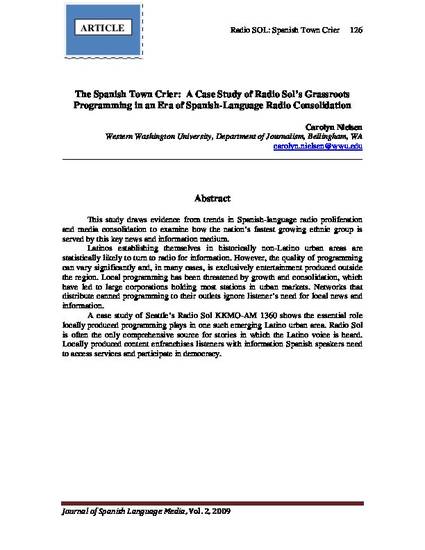
- Spanish-language radio,
- Radio Sol,
- Spanish-language radio consolidation
This study draws evidence from trends in Spanish-language radio proliferation and media consolidation to examine how the nation’s fastest growing ethnic group is served by this key news and information medium.
Latinos establishing themselves in historically non-Latino urban areas are statistically likely to turn to radio for information. However, the quality of programming can vary significantly and, in many cases, is exclusively entertainment produced outside the region. Local programming has been threatened by growth and consolidation, which have led to large corporations holding most stations in urban markets. Networks that distribute canned programming to their outlets ignore listener’s need for local news and information.
A case study of Seattle’s Radio Sol KKMO-AM 1360 shows the essential role locally produced programming plays in one such emerging Latino urban area. Radio Sol is often the only comprehensive source for stories in which the Latino voice is heard. Locally produced content enfranchises listeners with information Spanish speakers need to access services and participate in democracy.
